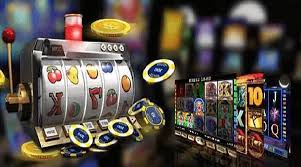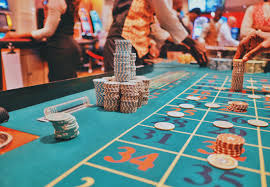Elevate Your Mind with Bounce Games

In today’s fast-paced world, finding engaging ways to enhance our cognitive skills can be both a challenge and a necessity. While traditional methods like puzzles and brainteasers are effective, there’s a fun alternative that’s gaining traction—bounce games. These interactive and entertaining exercises not only provide a delightful distraction but also offer an opportunity to boost various cognitive skills.
Why Focus on Cognitive Skills?
Cognitive skills are the brain’s fundamental abilities used to think, read, learn, remember, reason, and pay attention. They are crucial for everyday functioning and problem-solving. Strengthening these skills can lead to better academic and professional performance. In an era where mental agility is highly valued, finding ways to enhance cognitive abilities is essential. Bounce games offer an innovative approach to this goal, ensuring that the process is not just beneficial but also enjoyable.
The Mechanics of Bounce Games
bounce games typically involve keeping a ball or similar object in motion by bouncing it off surfaces, aiming for specific targets, or navigating through obstacles. The simplicity of these games belies their potential benefits. By requiring players to track moving objects and make split-second decisions, bounce games engage critical cognitive domains such as hand-eye coordination, spatial awareness, and reaction time. This dynamic interaction is what makes them particularly effective in enhancing cognitive skills.
Improving Hand-Eye Coordination
Hand-eye coordination is the ability to process information received through the eyes and use it to guide the hands in performing a task. Bounce games demand precise timing and accuracy, forcing players to synchronize their vision with their movements. This repeated practice leads to improved coordination, which is beneficial not just in gaming but also in real-world tasks such as driving or playing sports. By honing these skills through bounce games, individuals can see improvements in both leisure activities and daily tasks.
Spatial Awareness and Problem-Solving
Spatial awareness is the understanding of the space around us and how we relate to it. Bounce games often require players to anticipate the path of a bouncing object and adjust their actions accordingly. This exercise enhances the brain’s ability to visualize and manipulate objects in space, improving spatial reasoning skills. Additionally, the strategic element of bounce games—deciding the best angles and force to apply—promotes problem-solving abilities, encouraging players to think critically and adapt to new challenges.
Reaction Time and Adaptability
In bounce games, quick reflexes are a must. The need to respond rapidly to changing scenarios helps sharpen reaction times. This improvement is crucial in environments where fast decision-making is necessary, such as in professional settings or competitive sports. Furthermore, the unpredictable nature of bounce games fosters adaptability, teaching players to remain calm under pressure and adjust strategies on the fly. These skills are invaluable in both personal and professional contexts.
Mental Agility and Focus
Playing bounce games requires concentration and mental agility. The need to keep track of multiple elements simultaneously enhances focus and attention span. This mental exercise translates to improved cognitive flexibility—the ability to switch between thinking about different concepts or to think about multiple concepts simultaneously. Such agility is a significant asset in our multitasking world, aiding in better task management and decision-making.
Social Interaction and Competition
Beyond individual benefits, bounce games often have a social component, encouraging interaction and friendly competition. This aspect can improve communication skills and foster teamwork. Engaging in such games in group settings provides an opportunity to develop social bonds and learn from others. The shared experience of playing and strategizing enhances interpersonal skills, which are crucial in collaborative work environments.
Taking the First Step
Incorporating bounce games into your routine can be a simple yet effective way to boost cognitive skills. Whether you play them on your smartphone, tablet, or in a physical setting, the benefits are clear. Start by dedicating a few minutes each day to playing bounce games and gradually increase the complexity as your skills improve. This commitment can lead to noticeable cognitive enhancements over time.
Conclusion
Bounce games offer a playful and engaging approach to cognitive enhancement. By improving hand-eye coordination, spatial awareness, reaction time, and more, they provide a comprehensive workout for the brain. As an enjoyable alternative to traditional cognitive exercises, bounce games can be a valuable addition to your routine. For those seeking to boost their mental agility and overall cognitive health, it’s time to explore the world of bounce games and discover the benefits firsthand.


